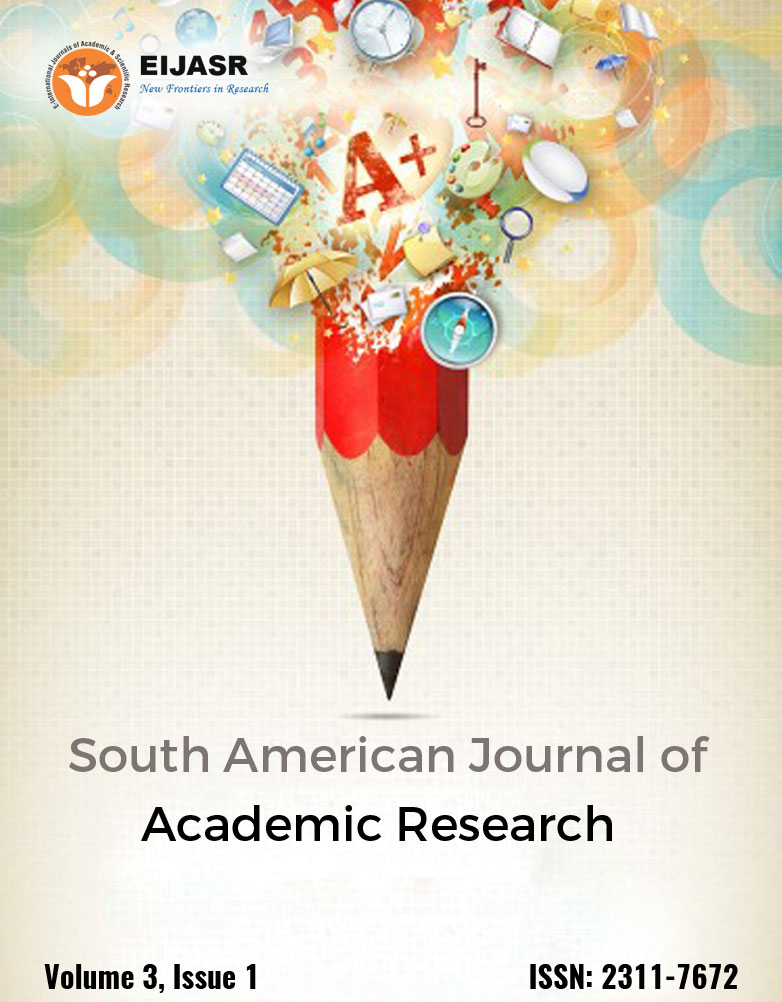References:
[1]
Abebe, S., & Haile Mariam, A. (2011). Teacher stressors and potential
remedies from pre-service teachers’ and cooperating Teachers’ Perspectives. Eastern Education Journal, 40(1), 64-74.
[2] Afandi, O., Hawi, H.,
Mohammed, L., Salim, F., Hameed, A. K., Shaikh, R. B., & Khan, F. A.
(2013). Sleep Quality Among University Students: Evaluating the Impact of
Smoking, Social Media Use, and Energy Drink Consumption on Sleep Quality and
Anxiety. Student Pulse, 5(06).
[3] Bezzina, C. (2006).
Views from the trenches: Beginning teachers’ perceptions about their
professional development. Journal
of In-Service Education, 32(4),
411-430.
[4] Bland, H. W., Melton,
B. F., Welle, P., & Bigham, L. (2012). Stress tolerance: New challenges for
millennial college students. College
Student Journal, 46(2),
362.
[5] Chaplain, R. P. (2008).
Stress and psychological distress among trainee secondary teachers in England. Educational Psychology, 28(2), 195-209.
[6] Charlesworth, R.,
Hart, C. H., Burts, D. C., Thomasson, R. H., Mosley, J., & Fleege, P. O.
(1993). Measuring the developmental appropriateness of kindergarten teachers'
beliefs and practices. Early Childhood Research Quarterly, 8(3),
255-276.
[7] Chong, S. N. Y., Wong,
I. Y. F., & Quek, C. L. (2005). Pre-service teachers™ beliefs, attitudes
and expectations: a review of the literature.
[8] Deniz, M. (2006). The
relationships among coping with stress, life satisfaction, decision-making
styles and decision self-esteem: An investigation with Turkish university
students. Social Behavior and
Personality: an international journal, 34(9), 1161-1170.
[9] Done, P. (2006).
Make'em Laugh (& They'll Learn a Lot More). Instructor, 115(7),
32-34.
[10] Ekpenyong, C. E.,
Daniel, N. E., & Aribo, E. O. (2013). Associations between academic
stressors, reaction to stress, coping strategies and musculoskeletal disorders
among college students. Ethiopian
journal of health sciences, 23(2),
98-112.
[11] Engle‐Friedman, M., Riela, S., Golan, R.,
Ventuneac, A. M., Davis, C. M., Jefferson, A. D., & Major, D. (2003). The
effect of sleep loss on next day effort. Journal of sleep research, 12(2), 113-124.
[12] Gerges, G. (2001).
Factors Influencing Preservice Teachers' Variation in Use of Instructional
Methods: Why Is Teacher Efficacy Not a Significant Contributor? Teacher
Education Quarterly, 71-88.
[13] Gray, E. K., &
Watson, D. (2002). General and specific traits of personality and their
relation to sleep and academic performance. Journal
of Personality, 70(2),
177-206.
[14] Isangedighi, A. J.
(1998). A climpse of teacher commitment. The
Journal of Research in Curriculum Studies, 1(1), 65-73.
[15] Kaur, S. (2011). Comparative Study of occupational Stress
among Teachers of private and Government Schools in Relation to their Age,
Gender, and Teaching Experience. International
Journal of Educational Planning and Administration. 1:2:151-160.
[16] Kiggundu, E., &
Nayimuli, S. (2009). Teaching practice: a make or break phase for student
teachers. South African
Journal of Education, 29(3),
345-358.
[17] Knight, C., Balatti,
J., Haase, M., & Henderson, L. (2010). Preservice teacher stressors and
their reactions to those stressors: Resilient responses.
[18] Kyriacou, C., & Kunc,
R. (2007). Beginning teachers’ expectations of teaching. Teaching and
Teacher Education, 23(8),
1246-1257.
[19] Lazarus, R. S., &
Folkman, S. (1987). Transactional theory and research on emotions and coping. European Journal of personality, 1(3), 141-169.
[20] MacDonald, C. J.
(1993). Coping with stress during the teaching practicum: The student teacher's
perspective. Alberta Journal
of Educational Research.
[21] Mapfumo, J. S.,
Chitsiko, N., & Chireshe, R. (2012). Teaching Practice generated stressors and
coping mechanisms among student teachers in Zimbabwe. South African Journal of Education, 32(2), 155-166.
[22] Montgomery, Cameron,
and André A. Rupp. "A meta-analysis for exploring the diverse causes and
effects of stress in teachers." Canadian
Journal of Education/Revue canadienne de l'éducation (2005): 458-486.
[23] Murray‐Harvey, R. (1999). How teacher education
students cope with practicum concerns. The
Teacher Educator, 37(2),
117-132.
[24] Ndifon, R. A., &
Cornelius-Ukpepi, B. U. (2014). The Relationship between Primary School
Teacher's Attitude to Work and Pupils' Academic Performance in Cross River
State, Nigeria. British
Journal of Arts & Social Sciences, 17(2).
[25] Ngidi DP & Sibaya PT 2003. Student teacher anxieties
related to practice teaching. South African Journal of Education,
23:18-22.
[26] Oral, B. (2012). Student
Teachers' Classroom Management Anxiety: A Study on Behavior Management and
Teaching Management. Journal
of Applied Social Psychology, 42(12),
2901-2916.
[27] Paulhus, D. L., &
Martin, C. L. (1988). Functional flexibility: A new conception of interpersonal
flexibility. Journal of
personality and social psychology, 55(1),
88.
[28] Powers, G. T. (2002).
Toward a resilience-based model of school social work: A turnaround mentor. Resiliency: An integrated approach
to practice, policy, and research, 153-170
[29] Richards, J. (2012).
Teacher stress and coping strategies: A national snapshot. The educational forum, vol.76
[30] Rieg, S. A., Paquette,
K. R., & Chen, Y. (2007). Coping with stress: An investigation of novice
teachers' stressors in the elementary classroom. EDUCATION-INDIANAPOLIS THEN
CHULA VISTA-, 128(2),
211.
[31] Samms, C. L. (2010). Relationship Between Dissimilar
Cognitive Styles, Use of Coping Behavior and Use of Learning Strategies (Doctoral dissertation, New Jersey
Institute of Technology)
[32] Sanyal Tudela, A.
(2014). Discourses of Experience: The Disciplining of Identities and Practices
in Student Teaching. Australian
Journal of Teacher Education, 39(3),
n3.
[33] Schempp, P. G. (1995). Learning on the job: An analysis of
the acquisition of a teacher’s knowledge. Journal of Research and Development
in Education, 28(4), 237-244.
[34] Üstün, B. T., &
Jakob, R. (2005). Calling a spade a spade: meaningful definitions of health
conditions. Bulletin of the
World Health Organization, 83(11), 802-802.
[35] Wadlington, E. M.,
Slaton, E., & Partridge, M. E. (1998). Alleviating stress in pre-service
teachers during field experiences. Education, 119(2), 335.


